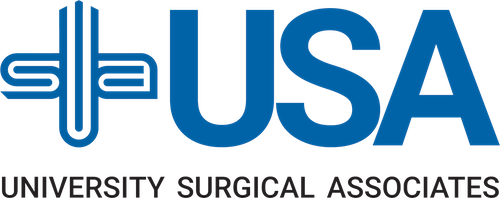Fundoplication Pre-Op Discussion
A fundoplication is an operation done to control gastro-esophageal reflux disease (GERD) which has not responded to medical treatment or which has resulted in a complication which makes continued medical therapy unsafe. The surgery involves using the stomach to build a one-way valve by wrapping the upper portion of the stomach around the lower end of the esophagus. This valve prevents food, liquids, and stomach juices from refluxing back up into the esophagus. This operation does not make the patient “normal,” because the normal individual has a little reflux about every 10–15 minutes for the first two hours following a meal. After a fundoplication there should be no reflux after a meal; so, that’s not normal. For this reason, fundoplication surgery is only used in patients whose symptoms can’t be controlled with medications or who have had repeated pneumonias, a life-threatening episode, or have developed an esophageal stricture.
As with any operation, there are possible complications which may result from fundoplication surgery. Many of the patients who would benefit from a fundoplication have other illnesses which may increase the risk of anesthesia or require observation in the intensive care unit after the operation or require ventilator support after the operation. Below are listed the most common, but not all possible, complications following this operation.
1. Wrap too tight — can’t swallow solids comfortably.
2. Wrap too loose — failure to control reflux (4%).
3. Failure of the wrap — fundoplication comes undone.
4. Wrap slips down onto the stomach — symptoms of reflux return.
5. Post-operative hiatal hernia — part of the stomach slips up into the chest.
6. Gas bloat syndrome — 10% of patients can’t burp; most patients cannot vomit.
7. Retching — post-nasal drainage, stomach empties too fast, or stomach empties too slow, or manifestations of seizures.
8. Adhesive bowel obstruction — 4-6% risk.
9. Infection
If you have any questions or concerns, do not hesitate to call our main office number at (423) 267-0466.
Fundoplication
Pre-Op Discussion
A fundoplication is an operation done to control gastro-esophageal reflux disease (GERD) which has not responded to medical treatment or which has resulted in a complication which makes continued medical therapy unsafe. The surgery involves using the stomach to build a one-way valve by wrapping the upper portion of the stomach around the lower end of the esophagus. This valve prevents food, liquids, and stomach juices from refluxing back up into the esophagus. This operation does not make the patient “normal,” because the normal individual has a little reflux about every 10–15 minutes for the first two hours following a meal. After a fundoplication there should be no reflux after a meal; so, that’s not normal. For this reason, fundoplication surgery is only used in patients whose symptoms can’t be controlled with medications or who have had repeated pneumonias, a life-threatening episode, or have developed an esophageal stricture.
As with any operation, there are possible complications which may result from fundoplication surgery. Many of the patients who would benefit from a fundoplication have other illnesses which may increase the risk of anesthesia or require observation in the intensive care unit after the operation or require ventilator support after the operation. Below are listed the most common, but not all possible, complications following this operation.
1. Wrap too tight — can’t swallow solids comfortably.
2. Wrap too loose — failure to control reflux (4%).
3. Failure of the wrap — fundoplication comes undone.
4. Wrap slips down onto the stomach — symptoms of reflux return.
5. Post-operative hiatal hernia — part of the stomach slips up into the chest.
6. Gas bloat syndrome — 10% of patients can’t burp; most patients cannot vomit.
7. Retching — post-nasal drainage, stomach empties too fast, or stomach empties too slow, or manifestations of seizures.
8. Adhesive bowel obstruction — 4-6% risk.
9. Infection
If you have any questions or concerns, do not hesitate to call our main office number at (423) 267-0466.

